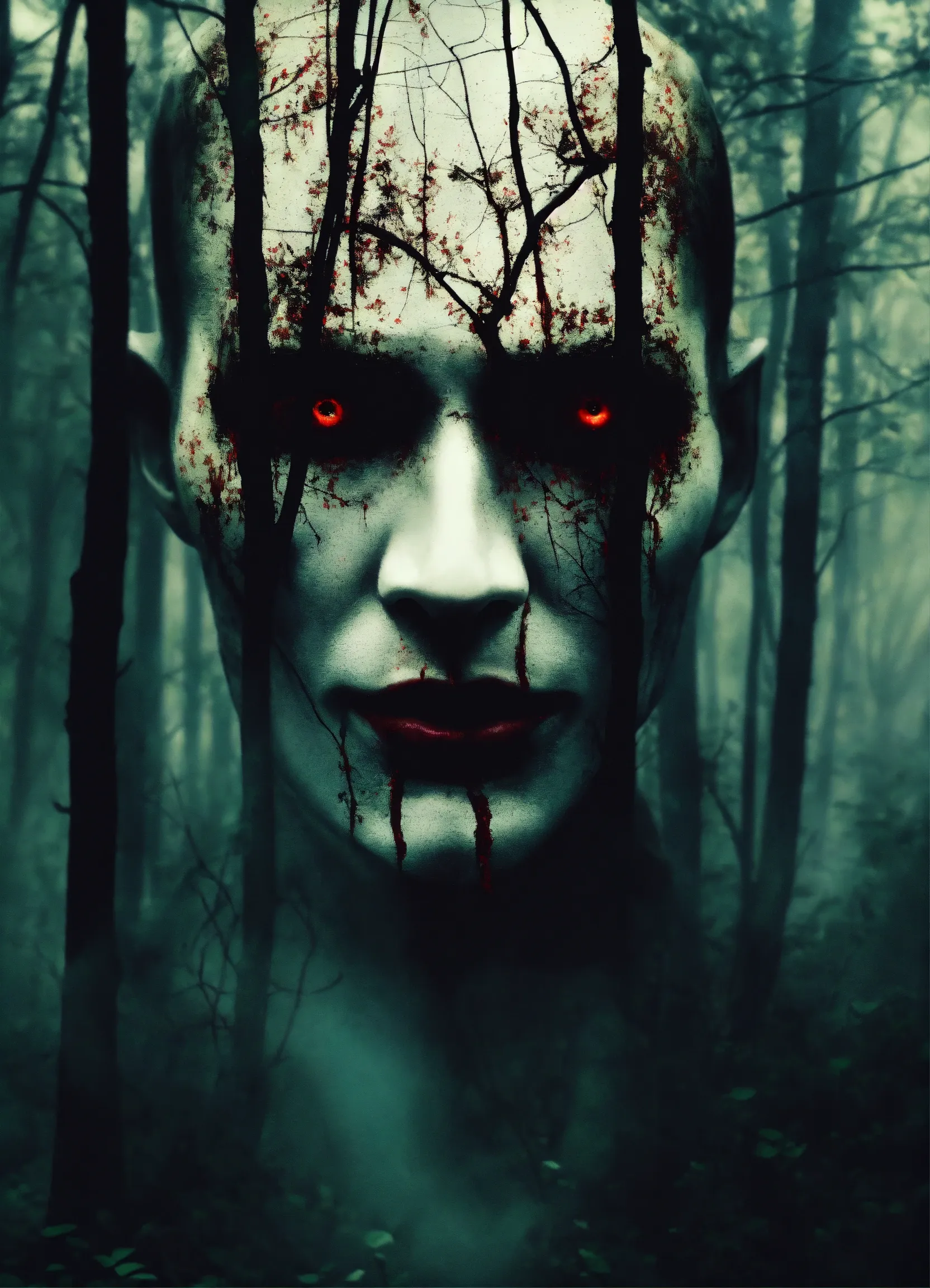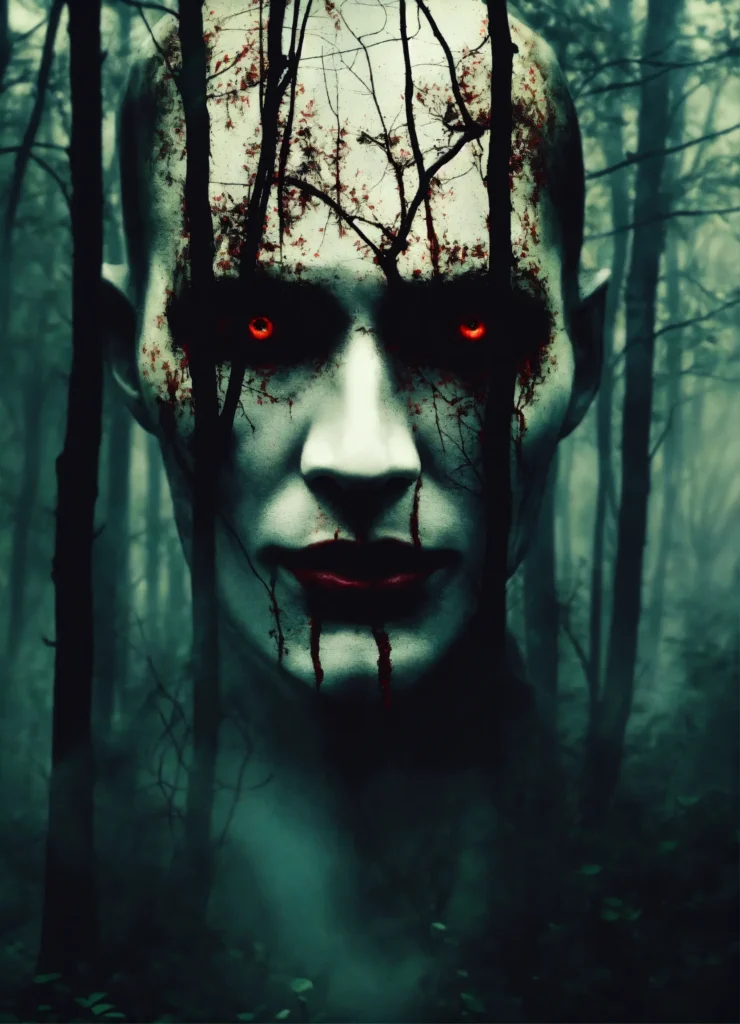
The monsoon hammered against the corrugated iron roof of my office, each drop a tiny drumbeat counting down the seconds to oblivion. Rain lashed against the grimy windows, blurring the neon glow of Calcutta into a sickly, ethereal smear. I sat hunched over a glass of cheap whiskey, the amber liquid reflecting the despair in my eyes. My name’s Roy, and I’m a private investigator. Or, at least, I try to be. Most of the time, I’m just a glorified debt collector with a drinking problem.
The dame who walked in was trouble, I could smell it on her like cheap perfume and desperation. She was draped in a sari the color of dried blood, her face hidden behind a veil of mourning. When she finally lifted it, her eyes were pools of obsidian, reflecting the same storm raging outside.
“Mr. Roy,” she said, her voice a husky whisper that seemed to slither into my bones. “I need your help. My husband… he’s gone.”
Husbands disappear all the time in this city. Usually, it’s gambling debts or a one-way ticket to Bombay with a younger woman. But there was something in her eyes, a primal fear that sent a shiver down my spine.”Gone where?” I asked, taking another swig of whiskey.
“He went to Varanasi,” she replied, her voice barely audible above the din of the storm. “He was researching… something. Now, he’s just gone silent. No calls, no letters. Nothing.”
Varanasi. The city of the dead. A place where the veil between worlds thinned, where the Ganges flowed with the ashes of centuries. A place I wouldn’t go near if you paid me a king’s ransom.
“And what was he researching?” I asked, already knowing I wouldn’t like the answer.
She hesitated, her fingers twisting the edge of her sari. “He was studying the Aghori,” she finally whispered. “The… the corpse eaters.”
The Aghori. A sect of Hindu ascetics who dwell in the cremation grounds, rumored to consume human flesh and commune with the spirits of the dead. They were whispered about in hushed tones, figures of fear and fascination.
I should have told her to get lost. Should have told her I don’t deal with ghost stories and black magic. But something in her desperation, the raw, unadulterated fear in her eyes, made me say yes. Maybe it was the whiskey talking. Maybe it was the slow, creeping rot that had been eating away at my soul.
The train to Varanasi was a metal serpent, crawling through the darkness. The air was thick with the smell of sweat, spices, and something else… something ancient and unsettling. I spent the journey staring out the window, watching the landscape morph from the grimy outskirts of Calcutta to the desolate plains of Uttar Pradesh.
Varanasi was a city of ghosts. The air hung heavy with the scent of burning wood and incense, the sounds of chanting and wailing echoing through the narrow, labyrinthine streets. The Ganges, a sluggish, brown river, flowed past the ghats, where bodies were burned day and night, their ashes scattered into the sacred waters.
I found the guesthouse where her husband had been staying, a crumbling edifice overlooking the Manikarnika Ghat, the main cremation ground. The room was small and spartan, the air thick with the smell of mildew and decay. His belongings were still there: a worn leather journal, a camera, and a collection of books on Hindu mythology and the occult.
The journal was filled with his meticulous notes on the Aghori. He had been tracking their movements, observing their rituals, trying to understand their beliefs. The last entry was dated three days ago. It read: “I have made contact. They have invited me to witness a ceremony. I fear I am in over my head.”
My gut churned. I knew, with a certainty that settled like lead in my stomach, that he was already dead. The Aghori didn’t invite outsiders to their ceremonies. They used them.
I spent the next few days navigating the city’s underbelly, talking to the locals, the sadhus, the beggars, the touts. Everyone knew about the Aghori, but no one wanted to talk about them. They were feared, reviled, and respected in equal measure.
One old woman, her face a roadmap of wrinkles, finally agreed to speak to me. She told me a story, a story of a dark god, a god of death and destruction, who demanded sacrifice. She told me that the Aghori were his servants, and that they sought to appease him with the flesh of the living.
I found them on the banks of the Ganges, hidden in the shadows of the cremation ground. They were a circle of gaunt, naked figures, their bodies smeared with ash, their eyes burning with a feverish intensity. In the center of the circle, a fire blazed, casting grotesque shadows on their faces.
They were chanting in a language I didn’t understand, their voices rising and falling in a hypnotic rhythm. The air was thick with the smell of burning flesh and decay. I saw it then, lying on a makeshift altar: a human form, its limbs twisted at unnatural angles, its face contorted in a silent scream.
It was him. Her husband.
I don’t know what happened next. I don’t know if I screamed, or if I just stood there, paralyzed with horror. All I remember is the eyes of the Aghori turning towards me, their faces splitting into grotesque smiles.
They came for me then, their hands reaching, their voices chanting my name. I ran, stumbling through the darkness, the sounds of their pursuit echoing in my ears. I ran until my lungs burned and my legs gave out, until I collapsed on the steps of a deserted temple, praying to a god I didn’t believe in.
I woke up the next morning, the sun beating down on my face, the sounds of the city slowly returning to my ears. I was alive. But something had changed. The world seemed different, tainted by the darkness I had witnessed.I left Varanasi that day, without a word to the police, without a word to his wife. I couldn’t tell her what I had seen. I couldn’t tell her that her husband had become a sacrifice to a dark god.
Back in Calcutta, the monsoon still raged. The city was drowning in its own filth and despair. I sat in my office, the bottle of whiskey my only companion. I knew I would never be the same. I had stared into the abyss, and the abyss had stared back.
The shadow of the ghat followed me, a constant reminder of the darkness that lurked beneath the surface of the world. The darkness that consumed us all. And I knew, with a chilling certainty, that it would never let me go.
Source: Read MoreÂ



